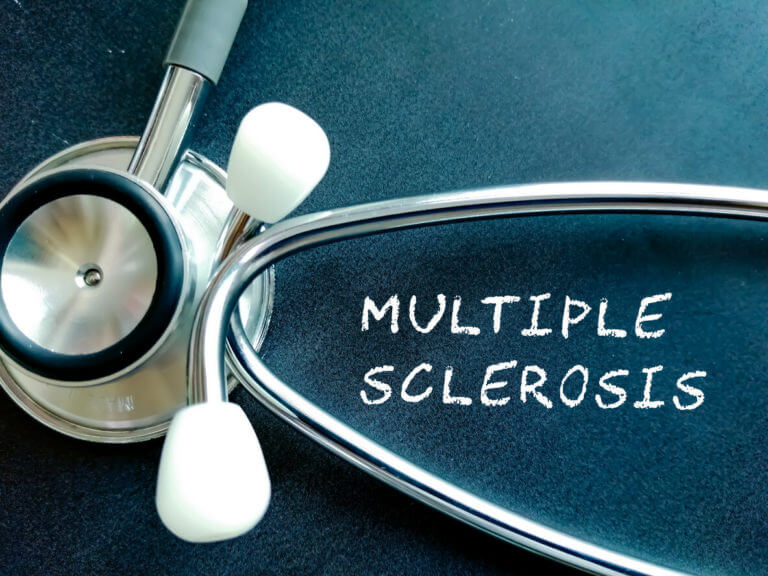
Multiple sclerosis treatment has advanced significantly, offering hope and a better quality of life for patients. If you have recently been diagnosed with multiple sclerosis (MS) or are considering a new treatment plan, understanding your options can help you make informed decisions.
Let us explore the role of medications in managing MS, focusing on how they work, their benefits, and their limitations. We will also discuss the importance of personalized care from a trusted neurologist near you.
What Is Multiple Sclerosis
Multiple sclerosis, or MS, is a chronic condition that affects the central nervous system, which includes the brain and spinal cord. It occurs when the immune system mistakenly attacks the protective covering of nerves, known as myelin. This causes inflammation and disrupts communication between your brain and body.
Symptoms of MS vary widely and can include fatigue, difficulty walking, muscle spasms, vision problems, and cognitive difficulties. While there is no cure, multiple sclerosis treatment focuses on managing symptoms, slowing disease progression, and preventing relapses.
Different Types of MS Medications
Medications play a critical role in multiple sclerosis treatment. These medications are generally grouped into three categories.
1. Disease-Modifying Therapies (DMTs)
Disease-modifying therapies are the cornerstone of multiple sclerosis treatment. These medications aim to reduce the frequency and severity of relapses and slow the progression of disability.
- Injectable DMTs: Options like interferon beta-1a (Avonex) and glatiramer acetate (Copaxone) are commonly used as first-line treatments.
- Oral DMTs: Oral options like fingolimod (Gilenya) and dimethyl fumarate (Tecfidera) offer convenience and effectiveness.
- Infusion DMTs: Infusion therapies such as ocrelizumab (Ocrevus) and natalizumab (Tysabri) are often used in cases of more aggressive MS.
2. Symptom Management Medications
Symptoms such as muscle spasms, pain, fatigue, and bladder issues are common in MS. Medications targeting these symptoms include:
- Muscle relaxants like baclofen or tizanidine
- Pain relievers or anticonvulsants like gabapentin
- Fatigue management drugs like amantadine
- Bladder control medications such as oxybutynin
These medications do not treat the disease itself, but they can greatly improve your quality of life.
3. Short-Term Treatments for Relapses
Sometimes, MS patients experience acute relapses or flare-ups. High-dose corticosteroids like methylprednisolone or plasma exchange (plasmapheresis) may be used to reduce inflammation and accelerate recovery during relapses.
How Do MS Medications Work
The effectiveness of MS medications depends on the type of multiple sclerosis you have. Broadly, these therapies work by:
- Reducing Immune Activity: DMTs suppress or modulate the immune system to prevent attacks on the myelin sheath.
- Slowing Disease Progression: Medications like ocrelizumab are designed to reduce long-term disability.
- Relieving Symptoms: Symptom-management drugs address the specific challenges MS presents daily.
Your neurologist will carefully assess your medical history, symptoms, and progression rate to determine the best option for you.
Benefits and Risks of MS Medications
Before starting any medication, it is essential to weigh the benefits and potential risks.
Benefits
The benefits of medications for MS treatment are as follows:
- Fewer Relapses: Patients taking DMTs often experience significant reductions in relapse rates.
- Slower Progression: Advanced therapies can slow disease progression, preserving mobility and independence.
- Improved Daily Functioning: Symptom-management treatments help improve overall quality of life.
Risks
Medications for MS treatment also have the following risks:
- Side Effects: For example, injectable medications may cause flu-like symptoms, while infusion therapies can increase infection risks.
- High Costs: Some DMTs are expensive, but financial assistance programs are available.
- Monitoring Requirements: Regular blood tests and MRI scans may be necessary to check for side effects or disease activity.
Discuss these with your neurologist to balance the benefits and risks effectively.
Non-Medication Approaches to MS Management
While medications form the backbone of MS treatment, lifestyle changes and complementary therapies play an important role in improving quality of life.
Physical and Occupational Therapy
Physical therapists can help with exercises to improve strength, flexibility, and balance, while occupational therapists can teach strategies to maintain independence in daily tasks.
Diet and Nutrition
While no specific diet cures MS, a balanced diet high in fruits, vegetables, whole grains, and lean proteins can support overall health.
Some research suggests that anti-inflammatory diets may also help reduce MS-related symptoms.
Mental Health Support
Living with MS can be emotionally challenging. Counseling or support groups can provide valuable resources and encouragement in coping with the condition.
Partnering With a Neurologist
If you are searching for MS treatment, finding a neurologist who specializes in MS is crucial. These experts can provide personalized care, helping you identify the most effective combination of treatments for your situation.
Clinics like Associates in Neurology offer state-of-the-art care for MS and other neurological conditions, including advanced diagnostics and therapies.
Multiple Sclerosis Treatment in Farmington Hills, MI
Living with multiple sclerosis is a unique journey, but support and options are available. By understanding the various treatment approaches — ranging from DMTs to lifestyle modifications — you can take control of your health and work toward greater well-being.
At Associates in Neurology, our board-certified neurologists specialize in MS treatment. Whether you need advanced diagnostics, personalized care plans, or access to the latest therapies, we are here to help. Located conveniently in Farmington Hills, Novi, and Howell, Michigan, we make it easy to find expert care close to home.
To learn more about how we can support you in managing multiple sclerosis or to schedule a consultation, call us today at (248) 478-5512 or fill out our appointment request form. We look forward to serving you!


